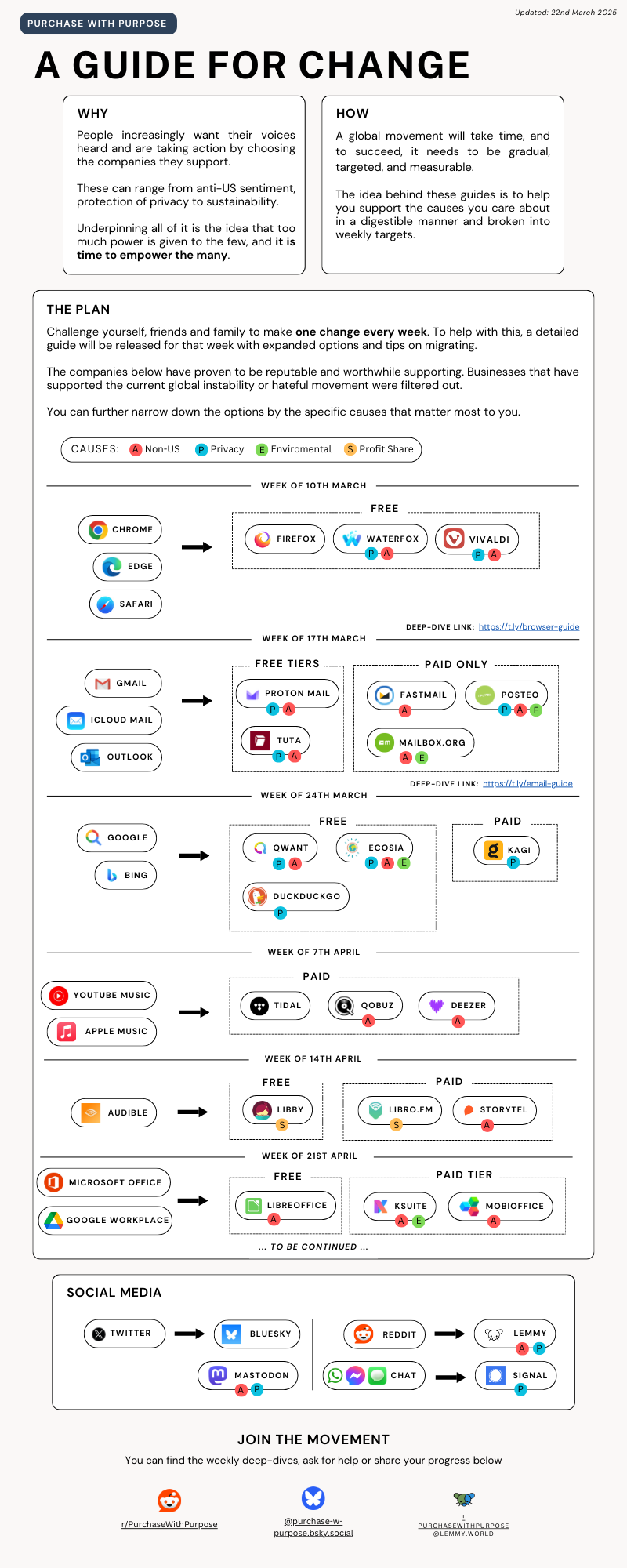First!
Also, I wanted to continue the discussion over from this thread on the Other Site. Changing your OS is much harder than the other changes, I think, but it would still be good to include.
Linux Mint - My preference, since it's the easiest for a new user to get into. I would feel confident teaching my grandparents how to use it
OpenBSD - This is the most secure, so anyone who is privacy focused would want this one. All linux distros are inherently more secure than windows (open source, don't come packed with adware, etc.), but this is OpenBSD's goal.
Then, you'd probably want a distro that works well on old laptops (why buy a new laptop if a 10-year old laptop can do the job fine?) Linux, in general, is a lot less resource-intensive than Windows anyways, but there are a few distros that are specifically built for old or tiny computers. Alpine Linux might be the smallest, but Lubuntu is probably better for user support. I haven't done much with either of them outside of some VMs here and there, so hopefully someone else has some good experience with "light" distros and can chime in.
It's real easy to get into the weeds on the "best" open source distro, so I'd recommend including one that's user friendly, one that's really secure, and one that's really good at running on old/obsolete hardware.




